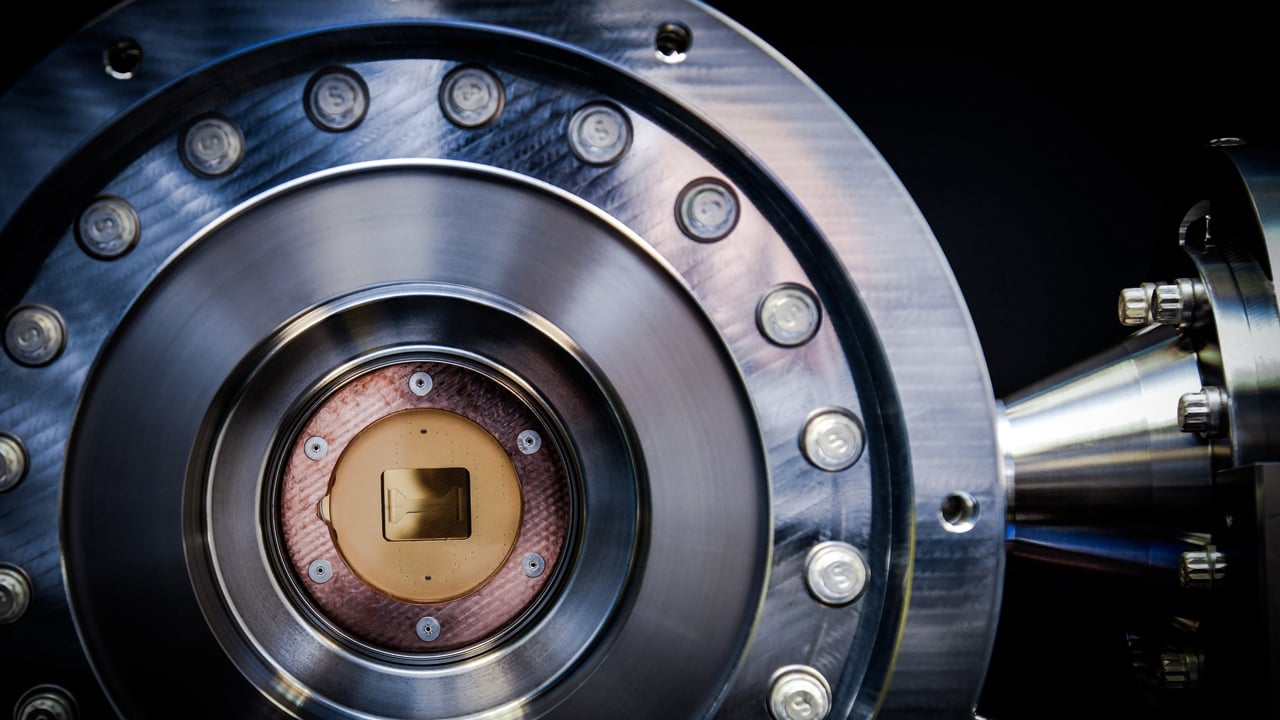Disrupt Bitcoin: Cryptocurrency proponents discuss Honeywell's 6 Qubit quantum computer
On June 19, 2020, large industrial firm Honeywell told the public that the company was currently operating a quantum computer that effectively utilized six effective quantum bits, or qubits. Honeywell has twice the power of quantum computers designed by IBM and Google. With Honeywell revealing the new quantum computer, skeptics began discussing the future effects on Bitcoin and 256-bit encryption.
Honeywell revealed a powerful six Qubit quantum computer that calls for theoretical discussions on Bitcoin with 256-bit encryption
In January 2019, bitcoins began talking about the theoretical attacks on the Bitcoin network, after IBM announced the Q System One at the Consumer Electronics Show (CES) 2019. The following September, the conversation The story and debate about the Bitcoin cyber threat took place once again, when the press reported on Google's quantum computer to perform a calculation known as the world's most powerful supercomputer.

Another major revelation has drawn discussions about a quantum computer that breaks 256-bit encryption and the foundation of Bitcoin Bitcoin cryptography once again and the debate has begun to heat up. The reason for these new conversations is due to a notice given Thursday from the company Honeywell.
Disrupt Bitcoin: Cryptocurrency proponents discuss Honeywell's 6 Qubit quantum computer
Honeywell quantum computer from 6 Qubit.
According to reports, the new Honeywell quantum computer, is twice as efficient as IBM's Q supercomputer and System System. Reports say that the Honeywell quantum computer is a game changer, and it is heralded as a result of quantum processing power.
Now, although Honeywell's quantum computer, which is quite powerful, to break Bitcoin's 256-bit cipher, it will take about 2,000 to 3,000 qubit of computing power. Estimates say that computer scientists will take about a decade to even try to crack 256-bit encryption today, or projects like Bitcoin take advantage of cryptography.

Honeywell supercomputer, reported to be 2 times faster than Google Google quantum computers and IBM Q System One.
Honeywell's latest machine, in operation, has a processing power of about six qubits, which is quite strong, but still a few thousand qubits less than what is needed to even threaten Bitcoin. Industrial giant Honeywell and its new quantum computer are very fast and have received praise for its 64 quantum mass. A publicly traded company worth over $ 80 billion is also involved in blockchain research and development.
Honeywell International Inc., has revealed a number of projects that leverage blockchain ledgers. However, with the new Honeywell quantum computer, skeptics think it could threaten Bitcoin's underlying infrastructure, namely SHA256. Some Bitcoin-based hash values can theoretically make private keys generated vulnerable to attack by force.
2 ^ 128 is a really big number
In a discussion on Twitter between long-time Bitcoin proponent Gabor Gurbacs, Ethereum, Vitalik Buterin and Blockstream, Adam Adam, the group also discussed the theoretical threat.
Even if one could emulate a classical quantum computer, there are some quantum security signature schemes that can be used for Bitcoin / blockchain security, Mr. Gurbacs tweeted on June 19. I hope those signature plans will be implemented as reality. He adds that the quantum computing power that can be deployed increases.

Estimates say that it will take computer scientists 2,000 to 3,000 qubits to even get close to breaking Bitcoin. The Qubit 6 quantum computer has received praise for quantum 64, but it is not even close to the SHA256 threat.
Moreover, bitcoin players also discussed Alistair Milne's famous bitcoin experience, recently, when he had a single BTC donation, where he gave out 8/12 from seed on Twitter. His phrase or seed of memory was brutally attacked, and this person wrote an interesting Medium blog post about how to successfully attack. However, many veteran bitcoins are simply not interested in Honeywell's new supercomputer attacks or brute force attacks. Then Milne's gift was ruined, he was joking about the subject last Thursday. Saving all of my bitcoins during the brute force attack was calculated at 1 trillion, according to Mil Milne.
Of course, Milne made it easier for hackers, by giving away some from the seed too early and the developer forced the seed, John Cantrell, to note that doing this to a seed Identified varieties are much harder. In a tweet topic on June 19, Cantrell stated that memorizing the 12-word Bitcoin is safe, as long as people do not support the introduction of any word [on] on Twitter.
Your bitcoin number is safe. 2 ^ 128 is a really big number - Just don't let anyone near your seed words, Detract Cantrell added.

Extra protection: Don thoroughly reuse Bitcoin address
Others on Twitter also emphasized that they are not afraid of new supercomputers or theoretical brute-force attacks on Bitcoin because the code is double protected.
Many bitcoin proponents have explained that if bitcoin people do not reuse the address, they will be more secure for their coins. Andreas Antonopoulos also stated that Satoshi Hui's two choices of cryptographic design were a complete genius. What you use as a Bitcoin address is a double hashed version of your public key - which means that the public key is never seen by anyone until you request it by paying spend transactions. - Therefore, if you use Bitcoin's basic best practice, use only one address once, use a different address for each transaction, use it completely every time you use it. In order to redirect change to a new address, Mr. Anton Antonopoulos said in an important speech many years ago.
Cashapp software engineer Daniel Diekroeger tweeted about the quantum discussion and said: Even 51% is not the end of the world - Will have to continue cash flow to sustain the attack to end .
Quantum - that's risky for all forms of encryption / encryption, etc. - The entire internet is risky, according to Die Dieroroer.
I hope the best practice quantum algorithms will appear and the worst-case scenario Bitcoin can fork (hard or soft uncertain) including art algorithms - There are two main principles used in bitcoin: hash function and ECDSA (digital signature algorithm for ellipse curve). Quantum will crack the ECDSA first, before it cracks the hash function. Mining uses hash functions, so the quantum won has affected that initially. ECDSA is what gives us the private / public key and the signing. Diekroeger added:
So if you share your public key, an advanced quantum computer can find your private key. The good news is that most bitcoin addresses do not share the public key - they share a hash of the public key for additional protection. We do not disclose public keys until we * spend * from an address. So by simply not reusing the address, you will be protected from quantum computing even if ECDSA is compromised.

This tiny genius design element was not an accident, Mr. Anton Antonopoulos added in his important speech. What it does is, it creates a second abstraction layer of the underlying encryption algorithm used in the elliptic curve digital signature that allows you to perform future upgrades. That means the past is secure because it is hidden behind the second curtain of another algorithm and the future can be changed because you can give an address that is not a hash of a The ellipse curve is either the hash function of another ellipse curve or the hash function of a larger elliptical curve or the hash function of a signing algorithm that is resistant to quantum resistance that has nothing to do with the elliptic curve. So you can make a forward modification to secure the future and you've got reverse protection because you've hidden the past, the Bitcoin missionary added.
Either way, Honeywell, the new six quantum bits, gives bitcoins another moment to argue about whether quantum computers are a threat to the Bitcoin network. So far, most veterans are completely unafraid that the 10-year estimates are probably much shorter, with Honeywell's latest six qubit innovation. Even so, many people optimistic about Bitcoin believe they can safely decode the code using quantum resistance algorithms if needed in the future.
What do you think of Honeywell's new six-bit quantum computer and the possible threat to Bitcoin? Let us know what you think about this topic in the comments below.
- Choose the best configuration management tool for your business
- Essentials on Hitachi Content Platform (HCP) Data Protection and Security
- When used Software as a Security nightmare: The risks of collaboration in the cloud
- About this webinar | Features and instructions for using Webinar
- How to use Webinar in business | Webinar Story 2019
Operate and exploit advertising by iCOMM Vietnam Media and Technology Joint Stock Company.
Adress: 99 Nguyen Tat Thanh, To 2, Khu 6, Thi tran Tan Phu, Tan Phu, Dong Nai.
Email: [email protected] | Tel: (+84) 984654960
Editor in chief: Tran Nha Phuong
Company: Lucie Guillot (Nha Phuong Tran)




